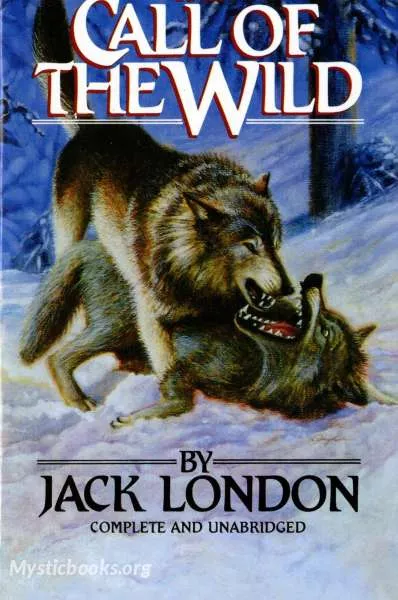
The Call of the Wild
by Jack London
'The Call of the Wild' Summary
The story opens in 1897 with Buck, a powerful 140-pound St. Bernard–Scotch Collie mix, happily living in California's Santa Clara Valley as the pampered pet of Judge Miller and his family. One night, assistant gardener Manuel, needing money to pay off gambling debts, steals Buck and sells him to a stranger. Buck is shipped to Seattle where he is confined in a crate, starved, and ill-treated. When released, Buck attacks his handler, the "man in the red sweater," who teaches Buck the "law of club and fang," sufficiently cowing him. The man shows some kindness after Buck demonstrates obedience.
Shortly after, Buck is sold to two French-Canadian dispatchers from the Canadian government, François and Perrault, who take him to Alaska. Buck is trained as a sled dog for the Klondike region of Canada. In addition to Buck, François and Perrault add an additional 10 dogs to their team (Spitz, Dave, Dolly, Pike, Dub, Billie, Joe, Sol-leks, Teek, and Koona). Buck's teammates teach him how to survive cold winter nights and about pack society. Over the next several weeks on the trail, a bitter rivalry develops between Buck and the lead dog, Spitz, a vicious and quarrelsome white husky. Buck eventually kills Spitz in a fight and becomes the new lead dog.
When François and Perrault complete the round-trip of the Yukon Trail in record time, returning to Skagway with their dispatches, they are given new orders from the Canadian government. They sell their sled team to a "Scotch half-breed" man, who works in the mail service. The dogs must make long, tiring trips, carrying heavy loads to the mining areas. While running the trail, Buck seems to have memories of a canine ancestor who has a short-legged "hairy man" companion. Meanwhile, the weary animals become weak from the hard labor, and the wheel dog, Dave, a morose husky, becomes terminally sick and is eventually shot.
With the dogs too exhausted and footsore to be of use, the mail-carrier sells them to three stampeders from the American Southland (the present-day contiguous United States)—a vain woman named Mercedes, her sheepish husband Charles, and her arrogant brother Hal. They lack survival skills for the Northern wilderness, struggle to control the sled, and ignore others' helpful advice—particularly warnings about the dangerous spring melt. When told her sled is too heavy, Mercedes dumps out crucial supplies in favor of fashion objects. She and Hal foolishly create a team of 14 dogs, believing they will travel faster. The dogs are overfed and overworked, then are starved when food runs low. Most of the dogs die on the trail, leaving only Buck and four other dogs when they pull into the White River.
The group meets John Thornton, an experienced outdoorsman, who notices the dogs' poor, weakened condition. The trio ignores Thornton's warnings about crossing the ice and press onward. Exhausted, starving, and sensing danger ahead, Buck refuses to continue. After Hal whips Buck mercilessly, a disgusted and angry Thornton hits him and cuts Buck free. The group presses onward with the four remaining dogs, but their weight causes the ice to break and the dogs and humans (along with their sled) to fall into the river and drown.
As Thornton nurses Buck back to health, Buck grows to love him. Buck kills a malicious man named Burton who hit Thornton while the latter was defending an innocent "tenderfoot" by tearing out his throat. This gives Buck a reputation all over the North. Buck also saves Thornton when he falls into a river. After Thornton takes him on trips to pan for gold, a bonanza king (someone who struck it rich in the gold fields) named Mr. Matthewson wagers Thornton on Buck's strength and devotion. Buck pulls a sled with a half-ton (1,000-pound (450 kg)) load of flour, breaking it free from the frozen ground, dragging it 100 yards (91 m) and winning Thornton US$1,600 in gold dust. A "king of the Skookum Benches" offers a large sum (US$700 at first, then $1,200) to buy Buck, but Thornton declines and tells him to go to hell.
Using his winnings, Thornton pays his debts but elects to continue searching for gold with partners Pete and Hans, sledding Buck and six other dogs to search for a fabled Lost Cabin. Once they locate a suitable gold find, the dogs find they have nothing to do. Buck has more ancestor-memories of being with the primitive "hairy man." While Thornton and his two friends pan gold, Buck hears the call of the wild, explores the wilderness, and socializes with a northwestern wolf from a local pack. However, Buck does not join the wolves and returns to Thornton. Buck repeatedly goes back and forth between Thornton and the wild, unsure of where he belongs. Returning to the campsite one day, he finds Hans, Pete, and Thornton have been murdered by Native American Yeehats. Enraged, Buck kills several Natives to avenge Thornton, then realizes he no longer has any human ties left. He goes looking for his wild brother and encounters a hostile wolf pack. He fights them and wins, then discovers that the lone wolf he had socialized with is a pack member. Buck follows the pack into the forest and answers the call of the wild.
The legend of Buck spreads among other Native Americans as the "Ghost Dog" of the Northland (Alaska and northwestern Canada). Each year, on the anniversary of his attack on the Yeehats, Buck returns to the former campsite where he was last with Thornton, Hans, and Pete, to mourn their deaths. Every winter, leading the wolf pack, Buck wreaks vengeance on the Yeehats "as he sings a song of the younger world, which is the song of the pack."
Book Details
Language
EnglishOriginal Language
EnglishPublished In
1903Genre/Category
Tags/Keywords
Authors
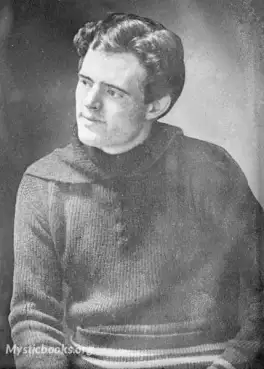
Jack London
United States
John Griffith London was an American novelist, journalist, and social activist. A pioneer of commercial fiction and American magazines, he was one of the first American authors to become an internatio...
Books by Jack LondonDownload eBooks
Listen/Download Audiobook
Related books
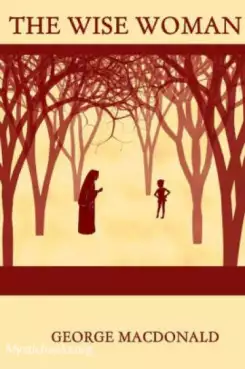
The Wise Woman by George MacDonald
The Lost Princess: A Double Story, first published in 1875 as The Wise Woman: A Parable, is a fairy tale novel by George MacDonald. The story des...

Harper's Young People, Vol. 01, Issue 30, May 25, 1880 by Various
Harper's Young People, a weekly publication for children, offered a diverse range of content in its 30th issue, published on May 25th, 1880. Readers...

Японские народные сказки (Yaponskie Narodnye Skazki) by Aleksandr Fyodorov-Davydov
This collection of Japanese folk tales offers a glimpse into the rich cultural heritage of Japan. Translated from German into Russian by Aleksandr Fyo...

Childhood's Favorites and Fairy Stories by Various
Since this series of books is intended for all young people from one to one hundred, it opens with about eighty of the old MOTHER GOOSE RHYMES. Nothin...

The Junior Classics Volume 3: Tales from Greece and Rome by William Patten
The purpose of The Junior Classics is to provide, in ten volumes containing about five thousand pages, a classified collection of tales, stories, and...

Weihnachtsmärchen für Kinder by Luise Büchner
Die kleine Mathilde möchte von ihrer Tante wissen, wer die Mutter des Christkindes ist. Die Tante will ihr daraufhin die Geschichte vom Christkind, se...
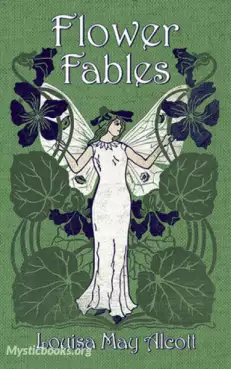
Flower Fables by Louisa May Alcott
Flower Fables was the first work published by Louisa May Alcott and appeared on December 9, 1854. The book was a compilation of fanciful stories first...
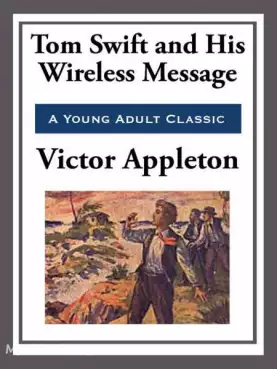
Tom Swift and His Wireless Message by Victor Appleton
Tom Swift and His Wireless Message, or, The Castaways of Earthquake Island, is Volume 6 in the original Tom Swift novel series published by Grosset &...

Olive Fairy Book by Andrew Lang
Andrew Lang's Olive Fairy Book is a collection of 24 fairy tales from around the world, including some of the most beloved and well-known stories such...
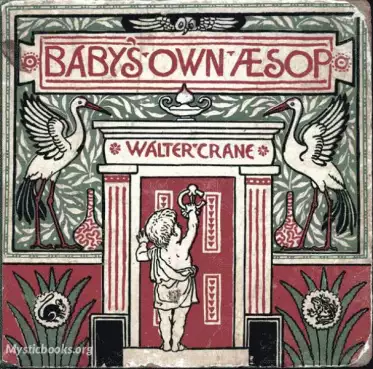
Baby's Own Aesop by Walter Crane
"Baby's Own Aesop" presents the fables as one-stanza limericks, each "pictorially pointed" by Walter Crane, the noted painter and illustrator. He appr...
Reviews for The Call of the Wild
No reviews posted or approved, yet...